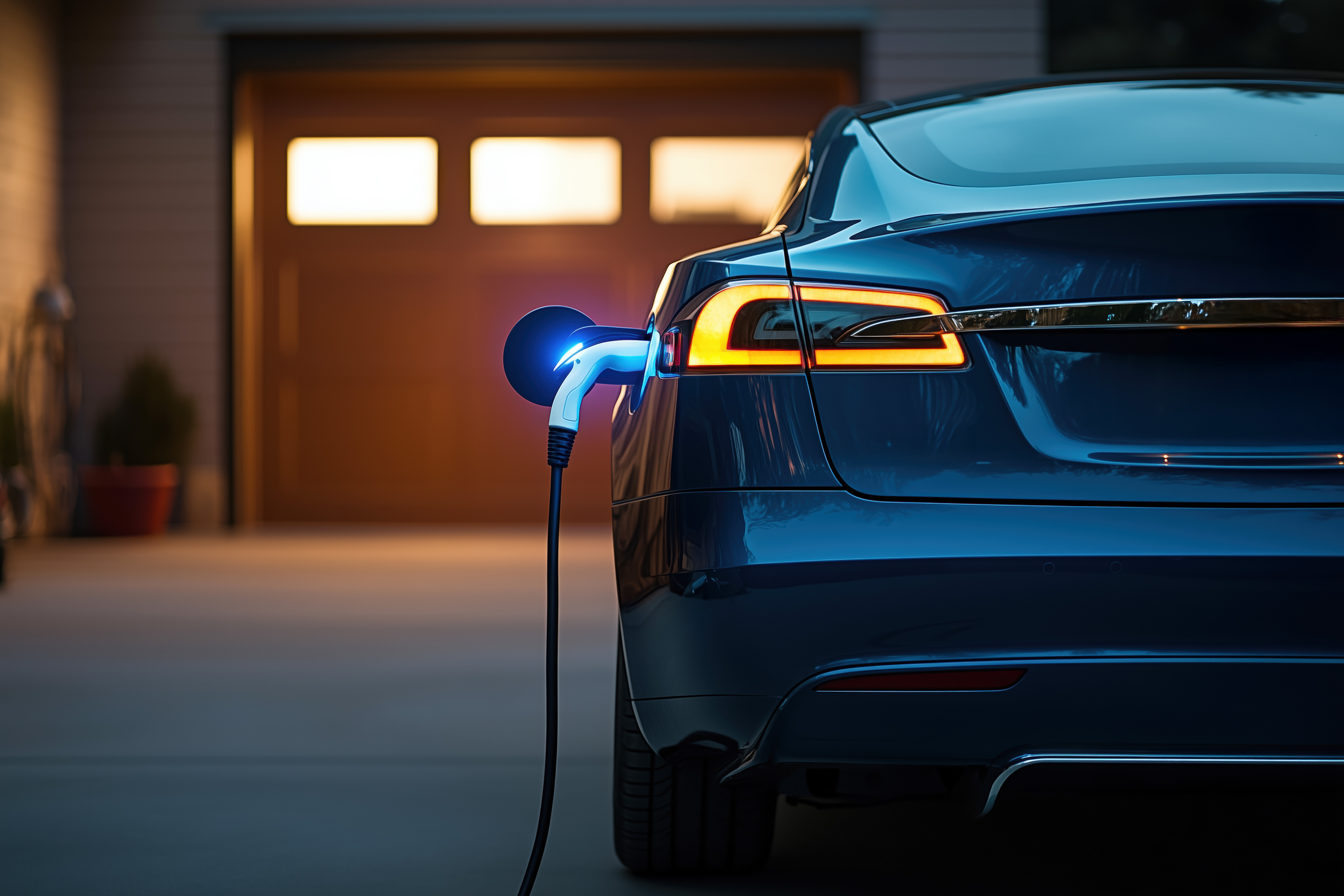Potential electric vehicle (EV) owners may be curious about what all goes into owning and operating an electric vehicle, including how they are charged and whether different EV models can all be charged using the same charger.
In this article, we’ll explore the different electric vehicle charging options and determine whether EV chargers are universal.
Are Electric Car Chargers Universal?
The answer to the question of whether any electric vehicle can use any EV charger is a bit more complex than a simple “yes” or “no.” Most Level 1 and Level 2 EV chargers are universal, but DC fast chargers vary by manufacturer and region. Let’s take a closer look at these three EV charging types.
EV Charger Level Types
There are three different charger levels for electric vehicles, known as Level 1, Level 2, and Level 3, or DC Fast Charging. Each of these has its own charging speed and accessibility.
Level 1 Charging (120V AC)
Level 1 chargers are the most basic chargers, using a standard 120-volt household outlet. These are usually used at home and charge EVs at a very slow speed, taking 24 hours or more to fully charge the battery from empty depending on the vehicle’s battery size. While their slow charging speed may be a drawback, they're conveniently able to charge almost all types of electric vehicles. EV owners can connect their cars to a standard outlet using a J-1772 or “j-plug.”
Level 2 Charging (240V AC)
Level 2 chargers are widely available and compatible with most EV models. Some drivers may need an adaptor depending on their EV model and the connector, but most Level 2 EV charging stations offer multiple connectors to meet the needs of a variety of EV models. These chargers are faster, using a 240-volt outlet, which can be installed in residences and is usually easily found in workplaces and public charging stations. Level 2 chargers are more practical for everyday use because they can usually charge an EV in 4 to 8 hours.
Level 3 Charging (DC Fast Charging)
The fastest chargers are Level 3 chargers, which are also known as DC Fast Chargers. They can fully charge certain EV models’ batteries in 30 minutes to an hour. These chargers aren’t universally compatible with all EVs, though. They aren’t suitable for certain plug-in hybrid electric vehicle models, which aren’t designed to utilize such a high amount of electricity. While DC fast charging is quick and convenient, it shouldn’t be used as a daily charging source because it can cause battery deterioration over time.
Charging an EV From Another Country
If you buy an electric car from another country, it may have a different plug type than what we’ve mentioned above. For instance, in Europe, Level 1 charging isn’t an option because the standard household voltage is 220-240V, so European EVs typically use the IEC 62196 type 2 connector for Level 2 charging.
DC fast chargers in Europe typically use the CCS2 plug, which is a variation of the CCS1 plug used in North America.
EV Charging Plugs and Connectors
Whether an EV charger is universal also depends heavily on the connector type. Charging ports on EVs may look similar, but the reality is that not all connectors are compatible across all vehicle models.
- Type 1 (J1772): Used most often in North America, this plug is found on most non-Tesla electric vehicles. Type 1 connectors use a five-pin configuration and are used with Level 1 and Level 2 chargers.
- Type 2: Popular in Europe and other parts of the world, Type 2 connectors are larger than Type 1 and feature a seven-pin configuration. These are used with Level 2 chargers and are commonly found in public charging stations in Europe.
- CHAdeMO: Primarily used by Japanese manufacturers like Nissan and Mitsubishi, these fast-charging connectors are mostly found in DC fast chargers.
- CCS (Combined Charging System): CCS is quickly becoming the standard for fast charging, especially in North America and Europe. These support both Level 2 AC charging and DC fast charging. Many new EVs, including those made by Ford, BMW, and Volkswagen, use the CCS connector.
Will EV Chargers Eventually Be Universal?
EV chargers are not completely universal yet, but the future is looking promising for a more standardized charging process. The barriers between different charging systems may become less of an issue as the number of EVs on the road increases and governments, manufacturers, and industry groups collaborate on standardizing the EV charging process. Some trends that could help include:
- Technological advancements: Innovations like wireless charging could soon reduce the need for a variety of physical connectors.
- Government regulations: Across the world, governments are beginning to create policies to standardize EV charging infrastructure.
The Bottom Line: EV Chargers Aren’t Completely Universal
EV chargers aren’t completely universal. While Level 1 chargers offer a simple, nearly universal solution for charging at home, Level 2 and Level 3 chargers can differ depending on the type of connector used by your electric car.
Standardizing the charging process for electric vehicles will likely become more of a concern as the EV market continues to expand. Until then, it’s important to develop an understanding of your vehicle’s charging needs and plan accordingly.
Gexa Energy offers energy plans specifically for EV owners. Learn about our EV plans to determine if one is right for you.






































